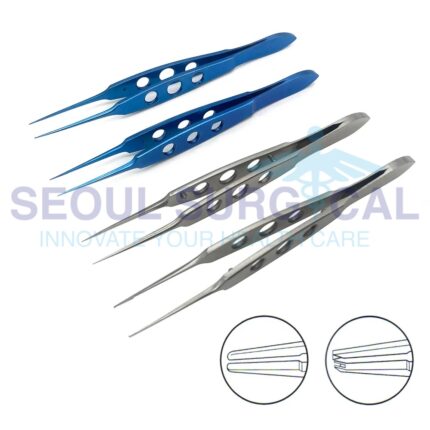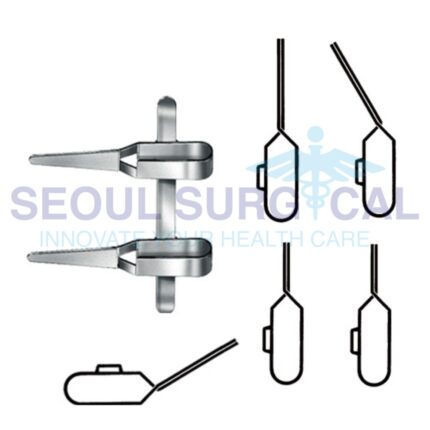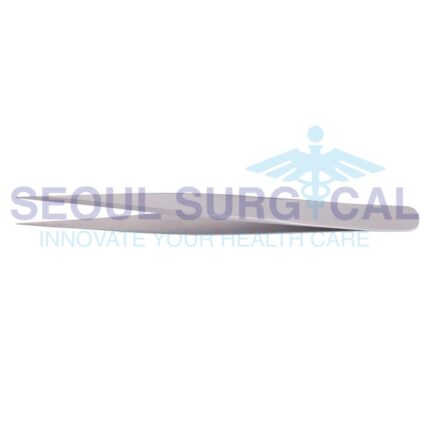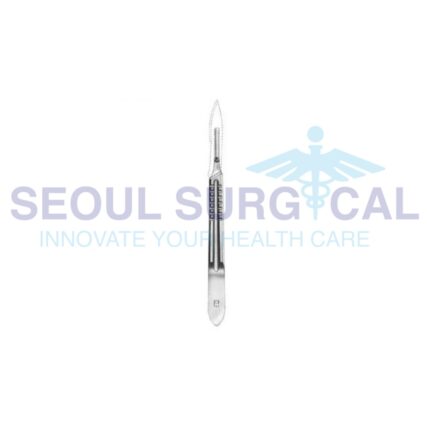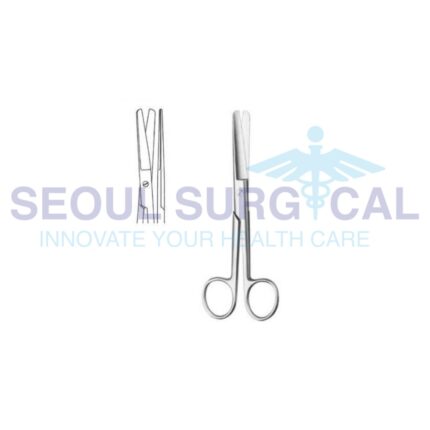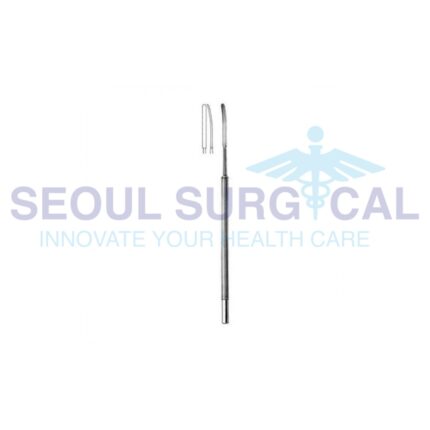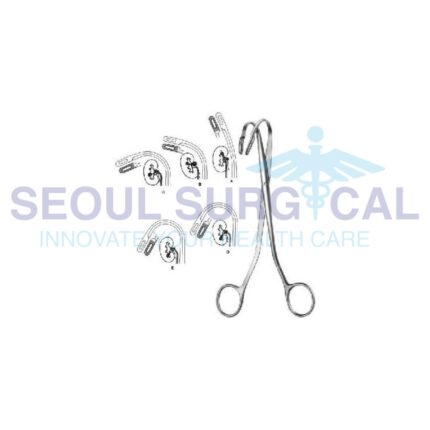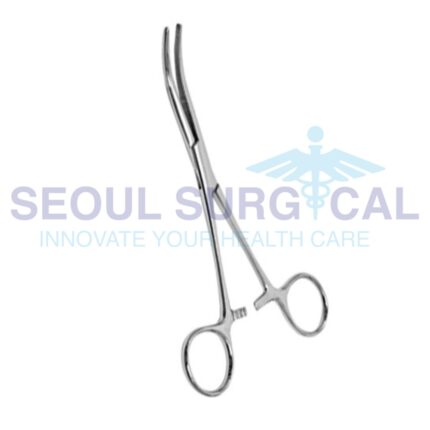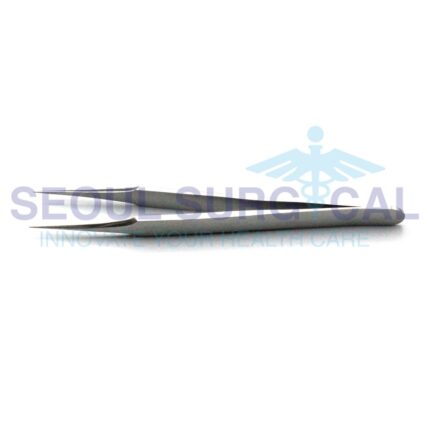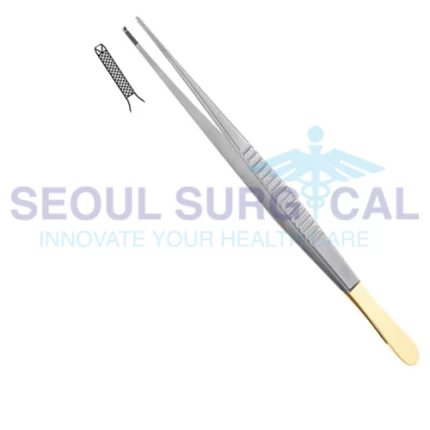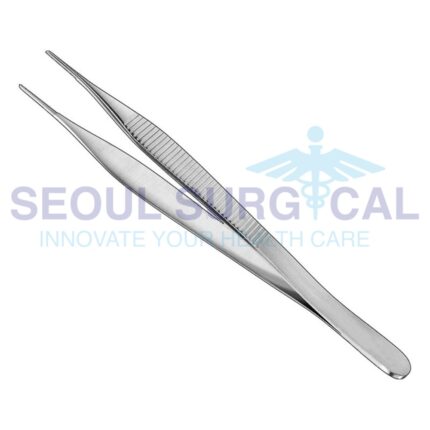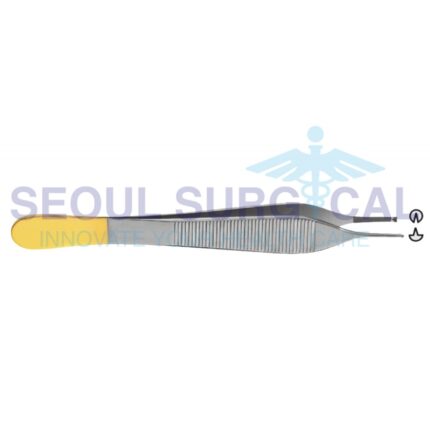Clean Hands, Safe Practices: Navigating Asepsis Instruments in Healthcare
Ensuring asepsis is a critical aspect of healthcare, especially in surgical and invasive procedures. Healthcare professionals follow strict protocols to sterilize instruments and maintain a sterile field, minimizing the risk of infections and promoting patient safety. The use of aseptic techniques is fundamental in preventing the transmission of pathogens in healthcare settings.
Closing the Divide: Surgical Approximators in Wound Management
The choice of a specific surgical approximator depends on the nature of the surgery, the type and location of tissues being approximated, and the surgeon's preference. Surgical approximators play a crucial role in promoting proper wound healing, reducing the risk of infection, and minimizing scarring.
Crafting Excellence: Navigating the World of Jeweler Type Forceps in Jewelry Making
Cutting with Confidence: A Comprehensive Overview of Surgical Scalpels in Urology
It's important to note that the proper handling, sterilization, and disposal of surgical scalpels are crucial for maintaining a sterile surgical environment and preventing the spread of infections. Surgeons and healthcare professionals choose the appropriate type of scalpel based on the specific requirements of the procedure and the characteristics of the tissues being incised.
Cutting-edge Care: The Evolution of Surgical Scissors for Urological Surgeries
It's important to note that proper care and maintenance, including regular sharpening and sterilization, are essential to ensure the effectiveness and longevity of surgical scissors. Surgeons and healthcare professionals select the appropriate scissors based on the specific requirements of the surgical procedure and the nature of the tissues being cut.
Cutting-edge Care: The Role of Specialized Instruments in Tonsillectomy and Laryngectomy
Cutting-Edge Urology: A Comprehensive Guide to State-of-the-Art Surgical Instruments
These instruments play a crucial role in the diagnosis and treatment of urological conditions, including kidney stones, prostate issues, bladder disorders, and male reproductive health. The selection of instruments depends on the specific procedure, patient condition, and the urologist's preferences. Advances in technology continue to contribute to the development of innovative and minimally invasive urology procedures.
Delicate Control: The Role of Peritoneum Forceps in Minimally Invasive Surgeries
The choice of peritoneum forceps depends on the nature of the surgical procedure, the specific tissues being manipulated, and the surgeon's preference. These forceps are made of high-quality materials such as stainless steel and are subjected to sterilization processes before use in surgery to maintain aseptic conditions. The delicate and precise design of these forceps allows surgeons to handle peritoneal tissues with care during abdominal and pelvic surgeries.
Delicate Grasping: Essential Tools for Jewelry Artisans – Jeweler Type Forceps
Delicate Maneuvers: Essential Micro Dissecting Forceps for Microsurgical Techniques
The use of micro dissecting forceps requires a high level of skill and precision, and they are typically employed in procedures where traditional surgical instruments may be too large or lack the necessary delicacy. Surgeons and researchers rely on these specialized forceps to achieve optimal outcomes in microsurgical interventions.
Delicate Maneuvers: Navigating Ciliary Procedures with Precision Cilia Forceps
If you have a specific context or application in mind, it would be helpful to provide more details for a more precise answer. Surgical instruments are often designed with specific tasks and tissues in mind, and the choice of forceps depends on the nature of the procedure and the tissues being handled.
Delicate Precision: Mastering Tissue Dissection with Advanced Forceps
The selection of dissecting forceps depends on the specific surgical or dissection task at hand, the size and type of tissues being manipulated, and the surgeon's preference. Dissecting forceps are typically made of high-quality surgical stainless steel and are subjected to sterilization processes before use in surgical procedures to maintain aseptic conditions.

